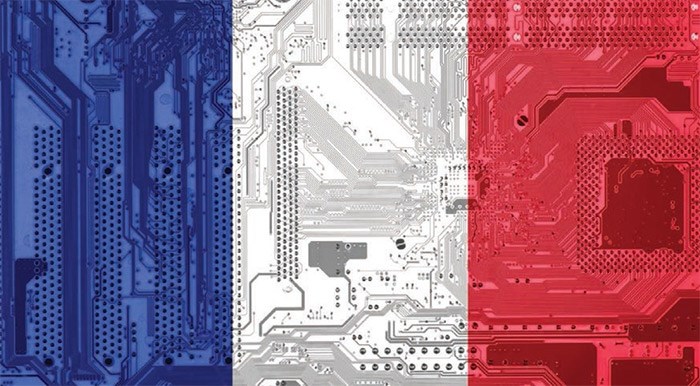 Aggressive development of France’s technology sector is a hallmark of the new government of French President Emmanuel Macron?|?Victor Lauer/Shutterstock
Aggressive development of France’s technology sector is a hallmark of the new government of French President Emmanuel Macron?|?Victor Lauer/Shutterstock
France’s sudden thirst for technology startups and entrepreneurs – spurred in large part by the election of President Emmanuel Macron in May – has its government on a recruiting drive in Western Canada and, more specifically, Metro Vancouver.
And given that the Canada-European Union Comprehensive Economic and Trade Agreement (CETA) went into effect just last month, French officials in Vancouver are taking the opportunity to blitz the local tech market with information on what’s now Europe’s second-largest venture capital market, all in an effort to attract B.C. startups to engage France as an incubator.
The largest of these efforts will come on November 2 and 3, when the Vancouver French consulate will co-host “Enterprising Culture” – a combination of panel discussions, industry forums, demos and networking gatherings – at Emily Carr University’s new campus on Great Northern Way. Vancouver’s Centre for Digital Media (CDM) and Emily Carr are the other co-hosts.
Philippe Sutter, the new consul general of France in Vancouver, said the B.C. tech sector and its startup scene are squarely in the sights of French officials because the country is looking for young, innovative talent to kick-start Macron’s plan to invigorate the economy through technology. The Vancouver sector’s youthful, energetic profile fits, Sutter said.
“The business links and co-operations between French startups and B.C. startups will be very important,” Sutter said, adding that officials want to avoid putting out the message that CETA would benefit only agriculture or resources trade. “Strengthening the relationship between the young generation – so not only encouraging interaction between big corporations, but also companies in the startup phase – is crucial for strengthening trade and investment between France and B.C.”
Patrick Pennefather, continuing senior lecturer at CDM and one of the event’s key organizers, said it will gather, in addition to other industry attendees, five virtual-reality/augmented-reality (VR/AR) technology companies each from B.C., Ontario and France.
He added that the timing not only demonstrates France’s newly invigorated interest in technology like VR/AR, but also highlights a broad, global convergence of awareness of how such technology can have broad implications in industries like health care.
“The important thing, I think, is this seems to be an event that’s well timed and current to the [industry] ecosystem in Vancouver,” Pennefather said. “The ecosystem here is now better at generating investment and interest, not just from government, but from external parties as well.”
He added that CDM representatives will likely attend a February conference in Paris on VR/AR to see if further development opportunities exist. He said CDM’s position as a research and development hub has already attracted industry interest, and the French wave is simply another part of that enthusiasm.
“I think what’s happening is that they are trying to position themselves – at least in Europe – as a centre for VR development and research,” he said. “I also think there’s a confluence of VR research that has been done since 1989, and some of that is right here in Vancouver…. We have the brain power; we just have to take advantage of it.”
Macron drew global attention when U.S. President Donald Trump withdrew from the Paris climate accord, to which the French president responded by publishing a YouTube video – in English, no less – inviting U.S. citizens working in the sciences and green technology to move to France.
Since then, France has introduced a number of reforms to make good on that invitation, including custom tax regimes and streamlined immigration for tech entrepreneurs. In Vancouver, Sutter reiterated those new regulations, but added France is not only seeking B.C. startups to go to Europe, but also encouraging overall interaction, including having some French talent come to B.C.
“More tourists, students coming to B.C., and many of these young people who visit are interested in investing here,” Sutter said. “I know many French youth who not only come here for the lifestyle, but also the creative space to be innovative and to invent in a cosmopolitan environment. The truth is, Vancouver is attractive, and that helps with what we believe will be a growing trend in the B.C.-French relationship.”
Investment in technology has surged in France in recent years. Data from CB Insights and PwC showed that tech company investment deals in the country almost doubled from 2015 to 2016 (to around 500), surpassing perennial European leader Germany for the first time in years.
Venture capital industry publication FinSMEs said France’s official data showed a first-half 2016 investment of 5.5 billion euros ($8.1 billion) in the country, most concentrating in digital tech, biotech and general corporate venture capital.
cchiang@biv.com
@BIVnews


